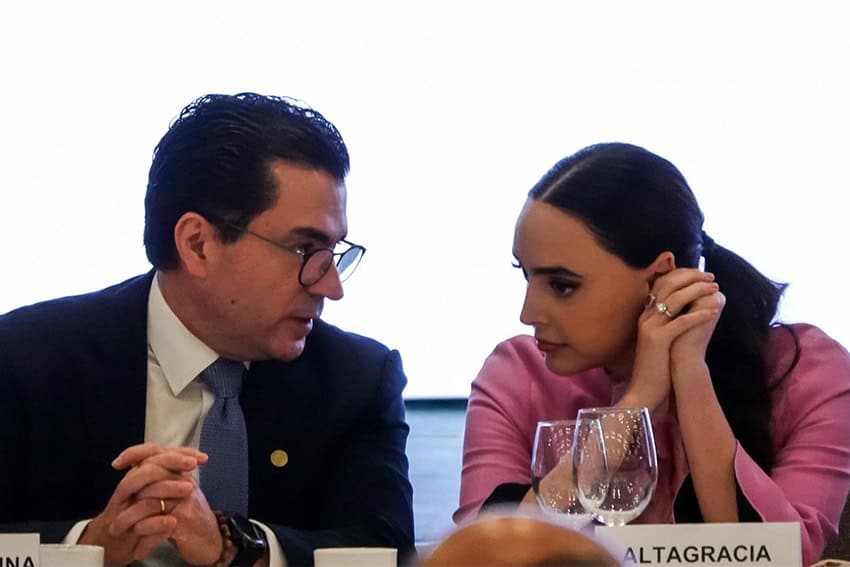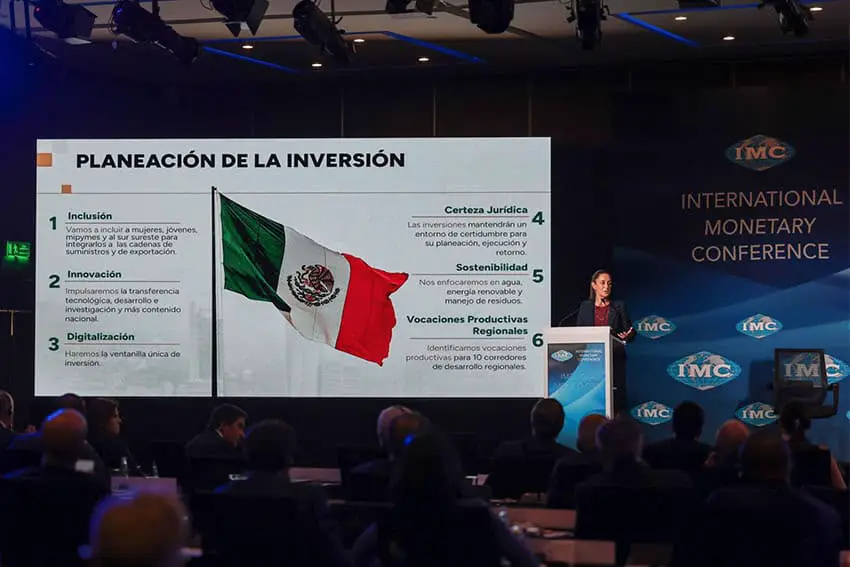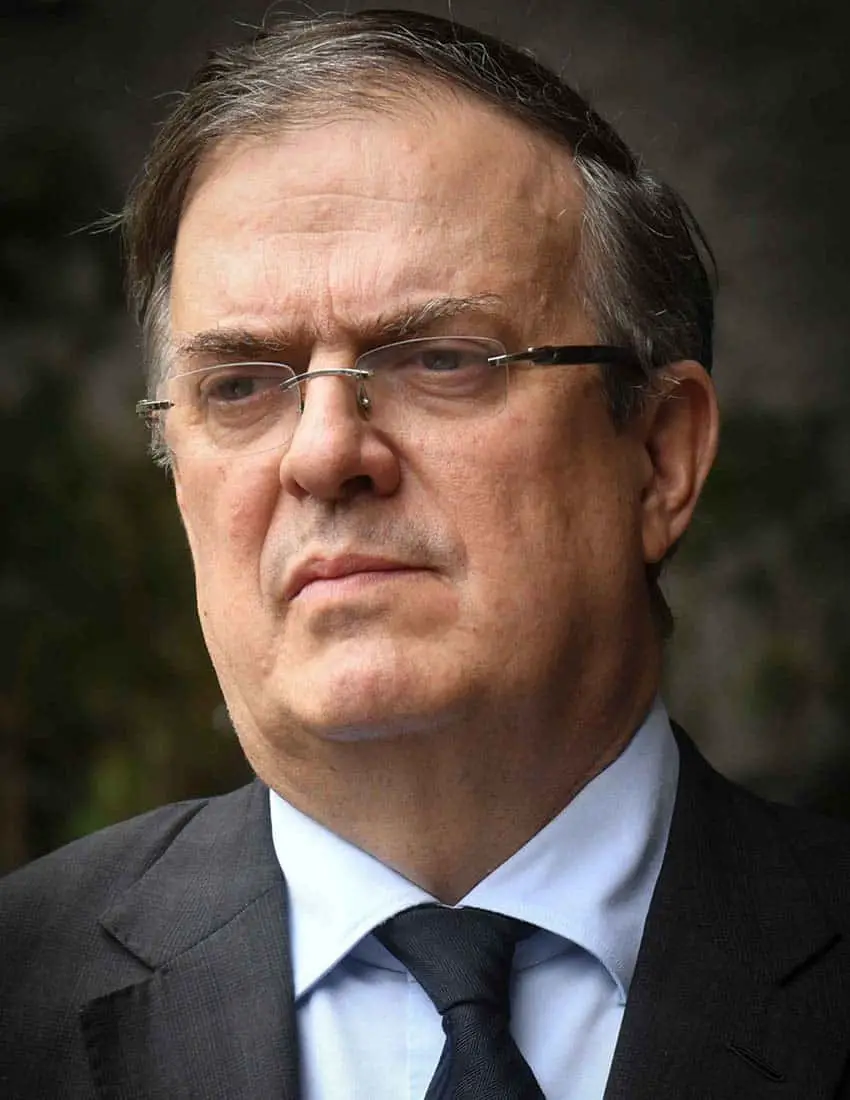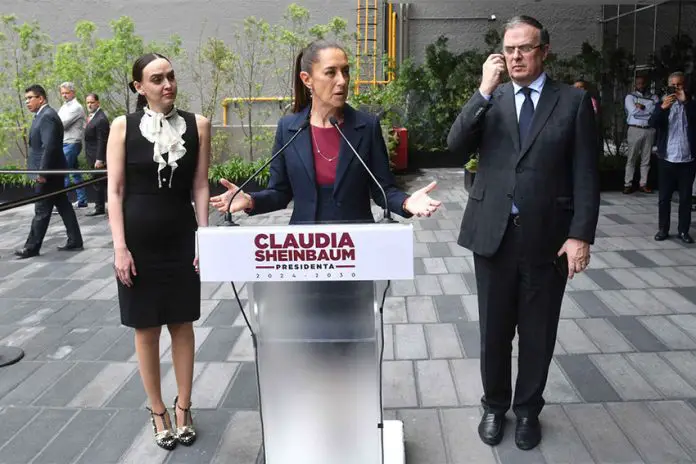President-elect Claudia Sheinbaum has announced the creation of a business advisory council for her presidency that will focus on regional development and Mexico’s nearshoring opportunity.
The Advisory Council for Regional Development and the Relocation of Companies will be headed up by businesswoman Altagracia Gómez Sierra and function as a link between the private sector and the incoming government led by Sheinbaum, who will take office on Oct. 1.

“It’s a council of businesspeople that Altagracia will coordinate and which will be in contact with” government ministers, Sheinbaum said Tuesday after meeting with foreign and Mexican financial industry executives at the annual meeting of the International Monetary Conference, which — for the first time ever — was held in Mexico City.
Sheinbaum said that incoming economy minister Marcelo Ebrard, current and future finance minister Rogelio Ramírez de la O and soon-to-be energy minister Luz Elena González will be among the government officials that will collaborate with the advisory council.
Sheinbaum also said that the council will provide a forum for her to engage with Mexican businesspeople.
Gómez, chairwoman of corn flour company Grupo Minsa, will lead “a council linked to the private sector, to encourage private investment associated with regional development and the relocation of companies,” Sheinbaum said.
The 32-year-old businesswoman — who was included on Forbes magazine’s 2024 list of the 100 most powerful women in Mexico — is already working for the president-elect’s transition team in a role focused on nearshoring investment and regional development.
Sheinbaum didn’t reveal who else will be on the council Gómez will lead, only saying that the members will be “various businessmen and businesswomen.”

After meeting with CEOs of major banks including BBVA, Scotiabank México and the Bank for International Settlements, Sheinbaum also told reporters that “there is a lot of interest in investing in Mexico,” where foreign direct investment is on the rise as companies expand their existing operations or relocate here as they seek to shorten supply chains and in some cases reduce their reliance on Asian countries, especially China.
“We have a lot of enthusiasm for the next six years,” Sheinbaum said, adding that her government’s aim will not just be to attract business investment but to ensure that money flowing into Mexico leads to development across the country and generates “well-being” for all Mexican people.
“We spoke [to the bank executives] about shared prosperity, which is the central axis of what our government will be in the next six years,” she said.
“… We spoke about our development project for the country … and the infrastructure we’re going to develop,” Sheinbaum said, referring to the construction of new highways and railroads, among other plans.
Sheinbaum is also planning to create 10 “specialized” industrial corridors across Mexico, each of which will prioritize foreign and Mexican investment in different sectors.
“We have a lot of enthusiasm about the role Mexico will play in the coming years,” the president-elect said Tuesday, noting that the USMCA trade pact and “other international agreements our country has” make Mexico an attractive place to invest.
Ebrard, who also met with the bank CEOs, said that the reception to the incoming government’s regional development and investment plan was “very positive because it’s very definite, very specific.”
“… The investment climate we have is very good, perhaps the most optimistic we’ve seen so far this century,” he added, noting that companies made investment announcements for Mexico in the first half of 2024 that together totaled more than US $45 billion.
Sheinbaum also spoke to bank leaders about other aspects of her administration’s agenda, including its energy and water plans. The president-elect has pledged to invest more than US $13 billion in a renewables-focused energy plan, and is also committed to making water use “much more efficient” and building new water infrastructure, including aqueducts and dams.
The availability of water and electricity in Mexico is among the top concerns of foreign and Mexican investors. Other concerns include insecurity, potential disrespect for the rule of law and lack of infrastructure.

Seeking to calm concerns over a proposed judicial reform that Congress will consider later this year, Sheinbaum said last month that investors in Mexico have “nothing to worry about,” and that “their investments in Mexico are safe, obviously within the framework of our laws.”
The Mexican peso depreciated sharply after she won the June 2 presidential election in a landslide and a coalition led by the ruling Morena party secured large majorities in both houses of Congress that put it in a strong position to approve a raft of constitutional reforms.
However, the peso has now recovered some of the ground it lost, and was trading at 17.83 to the US dollar at 11 a.m. Mexico City time.
With reports from El Financiero, El Universal, El Economista, El País and Reforma
